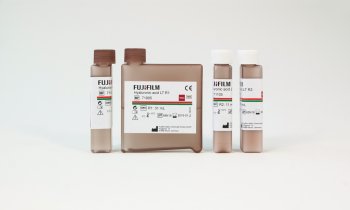1920s drug shifts into today’s alcohol addiction arena
EH Paris correspondent Annick Chapoy, reports on a French study that confirms the relevance of a drug with a long history in the management of other diseases
According to a preliminary study led by a team of French doctors, high-dose baclofen can be efficient against addiction to alcohol, opening the way for clinical tests to precisely assess the use of that muscle-relaxant drug to treat the illness. Bacoflen is not new. Formulated in the 1920s, the medicine is primarily used in neurology, spasticity and multiple sclerosis, but is increasingly prescribed for alcohol dependency. In 2008, its popularity was boosted by the publication of ‘The end of my addiction’, a book written by cardiologist Olivier Ameisen, an alcoholic, to describe how he experimented with the drug on himself. Used at high-dose levels, baclofen totally suppressed his craving for alcohol – indeed he reports that he became effortlessly ‘indifferent’ to it.
‘We estimate that between 20-30,000 people use baclofen today in France for alcohol problems; that’s a lot,’ says Dr Philippe Jaury, of the University of Paris-Descartes, who is the main author of the retrospective ‘open’ study published in Alcohol and Alcoholism last March. Together with another Dr Renaud de Beaurepaire (Centre Hospitalier Paul-Guiraud in Villejuif, near Paris), one of the first to have prescribed high doses of baclofen in France, Philippe Jaury studied 181 heavy alcohol consumers, of whom a followup evaluation was possible for 132. After one year of baclofen initiation, 80% of 132 patients had become either abstinent (78), or moderate low- risk drinkers (28). Even after considering as ‘failures’ the patients with whom contact was lost, (meaning a complete evaluation was impossible), the rate of success still stands at 58%. ‘This allows us to think that it’s more efficient than what we have now,’ Philippe Jaury concludes.
The rate of success after one year, with the two most used drug today, naltrexone and acamprosate, stands between 20 and 25%. That preliminary study opened the way for a comparative clinical trial taking place between May 2012 and the end of 2013. This double-blind randomised controlled study is directed by Philippe Jaury, involves 60 other doctors and includes 320 highrisk drinkers who will be followed for the year, divided into two groups, one using baclofen the other a placebo. That clinical survey (cost: €1.2 million euros) will be financed mostly from Social Security funds (€750,000 euros) and the rest from a private sponsor, according to Dr Jaury.
Baclofen doses will be increased gradually up to 300 milligrams daily, with the aim of suppressing alcohol craving. ‘In the preliminary study, we had gone up to 300, 350, 400 mg,’ Dr Jaury explains. The average efficacy dose on a oneyear basis was between 130 and 140 mg. In his book, Olivier Ameisen reports taking 70 to 160 mg daily, after reaching 270 mg. The most prevalent side effects from high- dose baclofen were tiredness or sleepiness, insomnia, dizziness or digestive problems. ‘It’s a fact that the more we are going to prescribe, the more we should be faced with unwanted effects that could be unusual,’ Dr Jaury admits, although adding, ‘We have a certain hindsight with multiple sclerosis, for which baclofen can be prescribed at high doses.’ Referring to intense information exchange on numerous websites, Dr Jaury stresses: ‘We’re under strong pressure from alcoholics.’
10.07.2012








